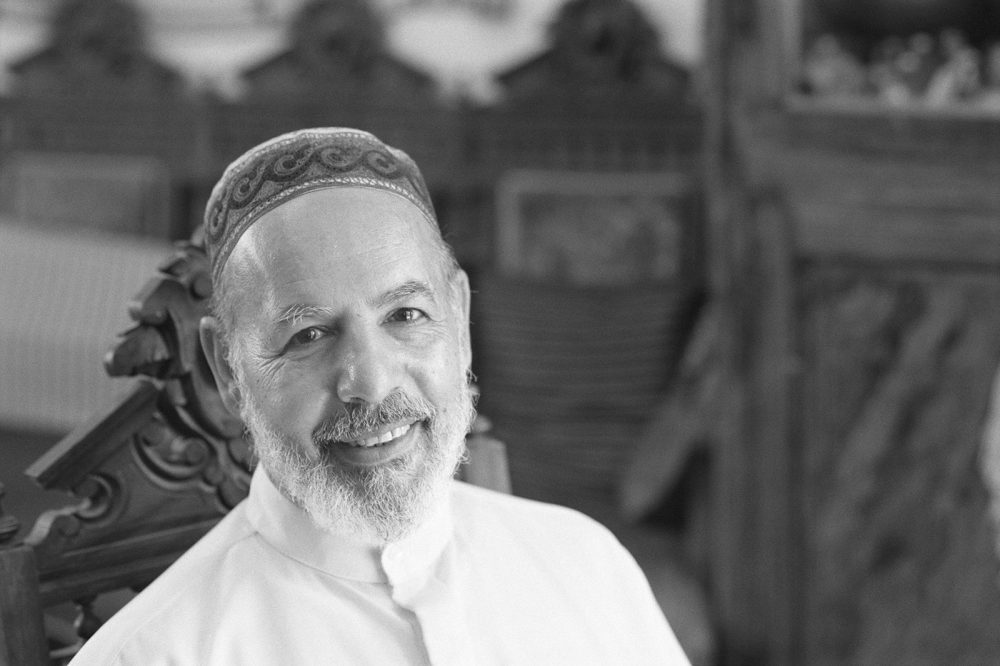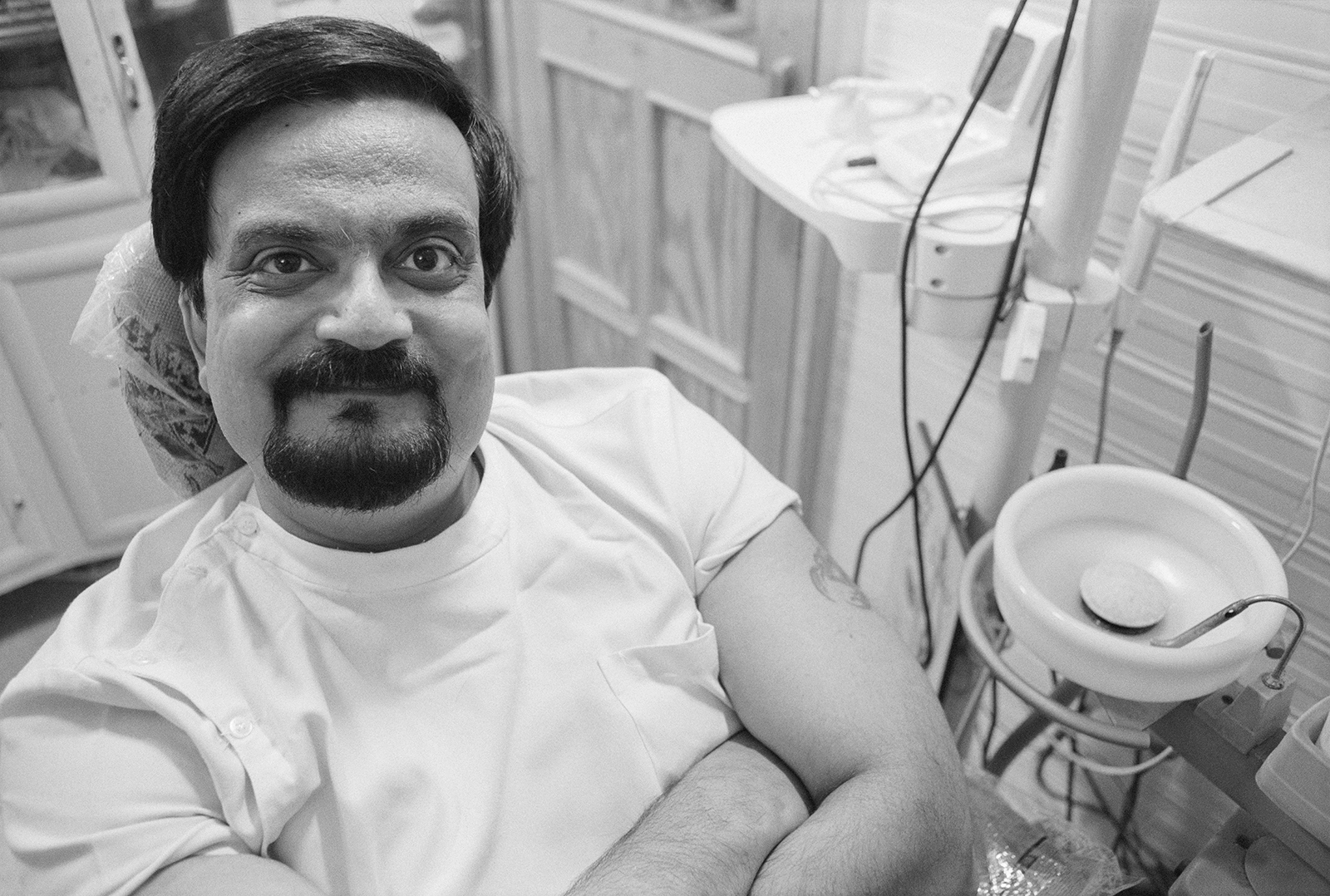AM I DOING THINGS FOR GOD OR MYSELF?
“When I was living in the States, I had a heart attack. They took me to the hospital. After they checked me out, they said, ‘you have to have an open heart surgery.’ And you know, but you can’t tell the doctors, no? So they started rolling me to the operation room and as I was laying on the stretcher I saw the ceiling above me. All of a sudden the ceiling disappears. There was no more ceiling. I saw just the sky. I said, ‘What am I doing here in the United States? What am I doing here? Am I doing things for God or for myself?’ Then I said, ‘God, I’ve been neglecting you for many years. If you give me another chance, I will work to please you, and to do things you want me to do.’
I got out of the operation. The amazing thing, and the doctor couldn’t believe after the third day of my operation, they didn’t even put one bandage on my wound. All my stitches healed in three days. There was not even one small problem I had. The wound healed so fast. The doctor was like, ‘How’d that happen?’ I told him I was not leaving the hospital unless I was able to go to Jerusalem. So after 13 days he said, ‘Yes. You can fly to Jerusalem.’
And I went from the hospital to the airport directly. I got on the plane and I came to Jerusalem and left everything behind ’cause what I was doing was just for this world, and I realized I was not doing anything for God. So I came back and I started updating my knowledge about religion, about God, and I started preaching and working for God more.
Back then, I was [relying] on my father, but now I said, ‘No, it’s time for me to start.’ After that my father passed away so I became the sheikh.”
Daniel’s Reflection
I met Sheikh Abdul Aziz Bukhari in his home in Jerusalem, a home that has been in his family since the year 1616, when his ancestors moved from Bukhara to Ottoman Empire Palestine.
The role of sheikh is passed down through family lines. Sheikh Bukhari’s father, the previous sheikh, insisted that Abdul Aziz would become the next sheikh, but Abdul Aziz would always say he did not want to become the sheikh. “It’s too heavy to be sheikh; it’s a lot of work, a lot of obligation, a lot of duty,” he said in our interview. “My father used to laugh and he’d say, ‘You’re going to be the sheikh!’”
As a young man, Abdul Aziz Bukhari moved to the United States to pursue a life different from the one his father had in mind. It was there that he had a profound spiritual awakening after a heart attack as he was being wheeled into heart bypass surgery. As they were wheeling him into the operating room, he had a mystical experience where the ceiling of the hospital disappeared and he could only see the sky. The message he received was: “What am I doing here in the United States? Am I doing things for God or for myself?” After the surgery he told the doctors he would not leave the hospital until he could go directly to the airport to fly home to Jerusalem. His incision wounds healed completely in three days and he went directly to the airport, leaving all of his possessions behind, and flew home. Soon after, his father (the sheikh) died, and Abdul Aziz became the sheikh.
Sheikh Bukari’s mystical message: “Am I doing things for God or for myself?” rings as truth for me. This question can be asked in other ways: “Am I living a life focused on self, or am I in service to others? What am I doing to improve the lot of humanity and all creation during my lifetime?”
Sheikh Bukhari’s experience reminds me of the Book of Jonah which I was excited to learn also appears in the Qur’an as the story of Yunus! Jonah is called by God to preach to the people of Nineveh that their city will be destroyed if they do not repent. In the Qur’an, Yunus actually goes to Nineveh but they reject him and kick him out. In the Hebrew Bible, Jonah avoids Nineveh completely and heads the other direction on a boat. We all know the story that the boat encounters a storm and the shipmates draw lots to determine who is at fault. They throw Jonah/Yunus overboard where he is swallowed by a great fish (whale). He lives in the belly of the whale until he prays a deep prayer of atonement for escaping the service of God. The Qur’an so beautifully records Jonah’s prayer as:
la ilaha illa anta subhanaka inneekuntu mina aththalimeen
“And he called out within the darknesses, ‘There is no deity except You; exalted are You. Indeed, I have been of the wrongdoers.’ ”
This has caused me to reflect on the ways in which I resist and run away from what I am called to do in this world.
I was frustrated to see the lack of control my parents had in their lives as teachers and the financial pressures this presented. I vowed to never let anyone control me like I felt they were controlled by their circumstances. This vow led me into accounting and then marketing. But I found that my greatest gifts were ultimately as a researcher and teacher inside of a corporation, not as a profit- and-loss business leader. My journey over the years of interfaith work became Portraits in Faith—well beyond the bounds of the Judaism in which I was raised. Today I can’t imagine doing anything different from what I am doing with Portraits in Faith and marketing consulting.
I was fortunate to work in a company, Procter & Gamble, that guided me and recognized my gifts. Sometimes we don’t have to run away on a ship in a storm and get swallowed by a great fish to be redirected to our calling. One of my mentors, Bob McDonald, said, “There is no more important job than to put people in the right jobs.” Helping people develop toward their best selves is sacred work in any walk of life. So it is funny to me now that I ended up being a teacher and researcher after all. And, that my healing journey would bring me to a spiritual platform much bigger and wider than where I thought, as a boy or young man, I was supposed to focus.
I looked for some guidance on how to know if we are following our true calling. Shelly Prevost, co-founder and CEO of Torch, stated it beautifully in an article published by Inc., “5 Ways to Distinguish Your Calling From Your Ego:”
“If your ego is what assembles your personality and manages your identity, then your calling is invested in making sure it’s authentic— who you really are—not just a persona you show the world. Here are some ways to decipher which one is really driving your work:
1 . Ego fears not having or doing something. Calling fears not expressing or being something.
2 . Ego needs anxiety to survive. Calling needs silence to survive.
3 . Ego manifests as burnout. Calling manifests as fulfillment.
4 . Ego focuses on the result. Calling focuses on the process.
5 . Ego wants to preserve the self. Calling wants to impact others.
“While your ego does a necessary job of helping you function in the world, it is your calling that creates a more authentic, soulful way to be in the world.”
I was fortunate to see the Sheikh Bukhari at the Parliament of the World’s Religions held in December, 2009 in Melbourne, Australia. He mentioned that no one had ever captured his eyes like we did in his portrait for this project, and I was very grateful for the compliment.
I was deeply saddened to hear that Sheikh Bukhari died in June 2010 of a heart attack, the very same medical issue that caused him to go into surgery where he had his spiritual epiphany. This reminds me that we have a small window of time to impact the world with our gifts. Sheikh Abdul Aziz Bukhari did just that. He was a peacemaker and loved people and life itself.








